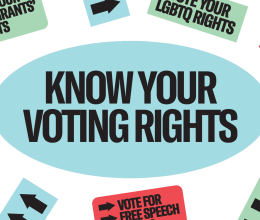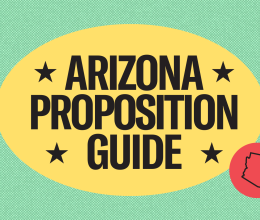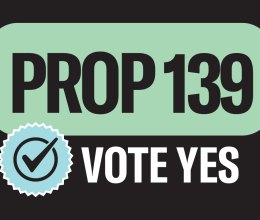
Arizona has a “decentralized” election system. That means elections are run at a local level and organized, overseen, and staffed by people who live in your community. They are everyday Arizonans who work hard to make sure you're able to cast your vote and your vote gets counted.
Whether elected by voters or appointed, Arizona’s election officials work together to uphold the will of the people. They have a responsibility to:
- Follow laws, procedures, and checks and balances put in place to ensure fair elections and accurate results.
- Impartially oversee and administer every aspect of the election.
- Ensure all voters can cast their ballot — including voters with disabilities and voters who need language assistance to vote.
- Ensure election results are certified in a timely manner to meet state and federal deadlines.
What is election certification?
Elections certification comes after a rigorous system of checks and balances to confirm election results are accurate. Election officials are tasked with carefully following the certification process, which is laid out clearly by Arizona state law that meets federal requirements.
Before an election is certified, votes are counted and verified. Next, the county board of supervisors “canvasses” the results, meaning they review the election results provided by the county election director at a public meeting and certify the results. The results of each county’s canvass and certification are sent to the secretary of state, who conducts the canvass and certification process for statewide and federal races.
Winners are declared during certification; not decided. Voters decide who wins when they cast their ballots. Election certifiers play an important procedural role in our elections process by making the verified results official – but they cannot overrule the will of the people.
Arizona’s election officials
Arizona’s 15 counties are responsible for conducting elections in their jurisdiction. Each county has a county recorder, a board of supervisors, and an elections director. While all are responsible for election administration, that administration must be done in accordance with state and federal laws. Several of the state’s high profile offices play a role, but local and county election officials handle important day-to-day processes that make it possible for people in their community to cast their ballots.
County Recorder
Elected by voters
Term Length: four years
The county recorder maintains public records and government information for the public and business purposes.
In the elections process, the county recorder is responsible for voter registration and early voting, among other elections-related responsibilities, such as:
- Managing candidate filings
- Overseeing voter registration
- Overseeing early voting
- Reviewing and verifying signatures on mail-in ballots
- Processing provisional ballots
- Maintaining voter lists in accordance with Arizona law
County Board of Supervisors
Elected by voters
Term Length: four years
Each county’s elections are overseen by a board of supervisors which are comprised of elected district supervisors. The board of supervisors oversees the administration of the county, with the power to make decisions in a variety of different areas, such as zoning challenges, ordinances, and more.
In the elections process, the board of supervisors is responsible for:
- Determining the polling places for Election Day and emergency early voting locations
- Setting the budget for the county recorder and county elections department
- Certifying the official election results for the county following the county’s canvass, which takes place during a public meeting
Notably, the board of supervisors does not have the authority to change vote totals, reject the election results, or delay certifying the results.
County Election Director
Appointed by the county recorder or board of supervisors
The county election director is responsible for what happens on Election Day, including counting ballots in their jurisdiction.
In the elections process, the county election director:
- Makes sure polling places are established across their county
- Hires and trains poll workers
- Tests voting equipment to ensure they are functioning properly and will produce accurate results
- Tabulates the votes
Secretary of State
Elected by voters
Term Length: 4 years, for two consecutive terms
The secretary of state’s most important role is oversight of Arizona's elections.
In the elections process, the secretary of state:
- Oversees elections administration
- Maintains the Elections Procedure Manual, which contains procedures that election officials must follow to keep election practices consistent and efficient across the state
- Maintains the statewide voter registration database
- Certifies voting devices
- Certifies ballot measures
- Certifies election results after each county board of supervisors canvasses the results for their jurisdiction
- Canvasses and certifies the results of federal, statewide, and legislative offices
Notably, the secretary of state does not have the authority to change vote totals, reject the election results, or delay certifying the results.
How Other Elected Officials that Impact Elections
State Legislature: Arizona House and Senate
Elected by voters
Senate term length: two years for up to four consecutive terms
House term length: two years for up to four consecutive terms
The Arizona Legislature creates, passes, and adopts laws related to the administration of elections. They set the policy for how elections should be conducted in the state, including determining when elections are held, key deadlines, and the qualifications for voting.
Arizona Supreme Court
Appointed by the governor
Term length: six years, after which voters decide whether to retain or remove a judge through a retention election
Arizona Supreme Court justices hear cases related to election law and voting issues, and make decisions impacting voting rights. Their decisions about the rights enshrined in the Arizona Constitution are usually the final word on the subject.
Governor
Elected by voters
Term length: four years, for two consecutive terms
The Arizona governor oversees the public meeting where the secretary of state canvasses the results, but the governor of Arizona has no formal role in certifying the elections process other than being present at the public meeting where the Secretary of State canvasses the results.
Outside of the election, the governor can advocate for the expansion of voting rights, veto voter suppression bills, and issue executive orders expanding access to the ballot.
Attorney General
Elected by voters
Term length: four years, for two consecutive terms
The Arizona attorney general is the state’s chief lawyer and legal advisor tasked with upholding the state constitution. The Attorney General runs an Election Integrity Unit in their Criminal Division to enforce election laws and prosecute those who threaten election officials. Every odd-numbered year, the Attorney General reviews the Election Procedures Manual.
County Sheriff
Elected by voters
Term length: four years
County sheriffs enforce the law throughout the county, serving court orders, warrants, and have legal authority over county elected officials. A sheriff’s deputy may be responsible for transporting ballots, voting equipment, or necessary voting location supplies if there are unexpected circumstances that prevent authorized election workers from doing so.
County Attorney
Elected by voters
Term length: four years
County attorneys serve as the county’s public prosecutor and decide who to charge with crimes, what crimes to charge, and the severity of punishment. They can bring civil and criminal charges against any election official who refuses to carry out their official duties or legal obligations.
Summary:
- The legislature writes, passes, and adopts the laws that govern elections.
- The governor signs or vetoes election laws.
- The county recorder manages voter registration and early voting in their jurisdiction.
- The county election director is responsible for what happens on Election Day, establishing polling places, hiring and training poll workers, and tabulating votes.
- The board of supervisors approves Election Day voting locations, emergency early voting locations, approves budgets, and certifies results for their county.
- The secretary of state develops the Election Procedures Manual, maintains statewide voter registration, and certifies state results.
- The attorney general runs the Election Integrity Unit to enforce election law.
- The Arizona Supreme Court hears cases about election law and voting issues to make decisions about voting rights
- A county sheriff’s deputy may be brought in to transport election equipment and supplies on Election Day if unforeseen circumstances prevent authorized workers from doing so.
- A county attorney can bring charges against an election official who refuses to carry out their official duties.
- All of these entities work together to administer elections in Arizona.






